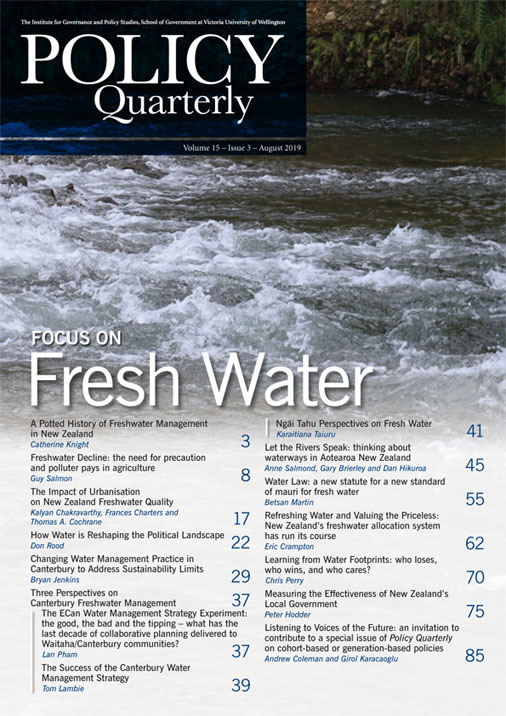Freshwater Decline
the need for precaution and polluter pays in agriculture
DOI:
https://doi.org/10.26686/pq.v15i3.5682Keywords:
good management practices in livestock production, farmer entitlements, multilevel governance, New Zealand regional councils, freshwater quality problems, polluter pays principleAbstract
Regional councils set objectives in 1992 to maintain and improve freshwater quality. Since then water quality in most agricultural areas has deteriorated. Proposals for freshwater reform need to understand the reasons for this long divergence between stated intentions and actual results. A key driver has been the accretion over time of farmer entitlements to damage freshwater resources. This accretion has been overseen by regional councils, contrary to their own stated objectives. Councils’ lack of precautionary action, and primary reliance on encouraging good management practices within existing livestockbased land uses, has allowed limits to be overshot. Livestock numbers will now have to reduce in many areas. Councils are unlikely to deliver such an outcome without major changes to the policy framework. A government which has both economic and environmental goals needs policy instruments which can decouple agricultural value creation from environmental impacts. This requires an ability to apply the polluter pays principle, to drive eco-efficiency, innovation and land use change. Six major barriers exist to implementing polluter pays, which should be addressed if the pastoral export economy is to escape being hard-wired in pollution-intensive mode.
Downloads
Downloads
Published
Issue
Section
License
Permission: In the interest of promoting debate and wider dissemination, the IGPS encourages use of all or part of the articles appearing in PQ, where there is no element of commercial gain. Appropriate acknowledgement of both author and source should be made in all cases. Please direct requests for permission to reprint articles from this publication to Policy-Quarterly@vuw.ac.nz.



